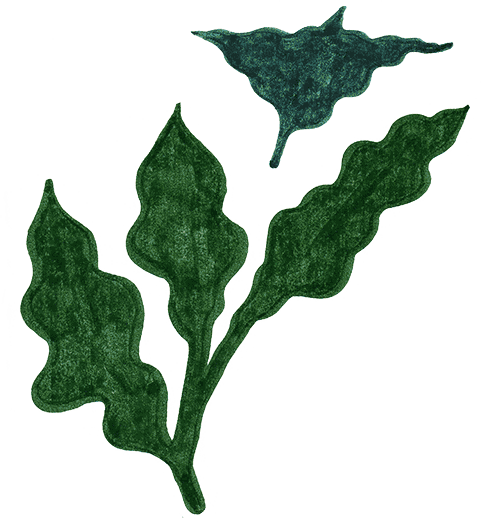
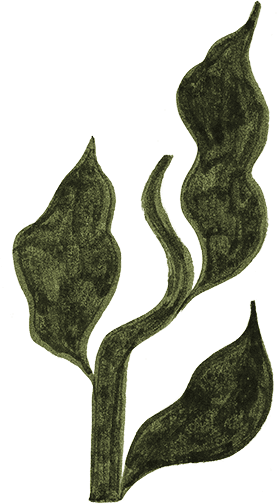
The key findings have helped us articulate the grounding principles of our participatory practice as a feminist fund. These values have always existed, but they are now solidified as part of the structure and principles under which this model operates. In this section, we reflect on the structure that holds those values and allows them to express themselves and shape this process.
Index
- The beginning of FRIDA’s participatory grantmaking journey
- Grounding our practice in feminist values and principles
- What we hope to manifest through a participatory grantmaking practice
- Building access and conditions for participation in our processes
- Intersectionality at the foundation of the participatory grantmaking process
- Practicing feminist solidarity and accountability
- Trust as an outcome, not an assumption
- Meaningful participation can strengthens movement connections
- Holding space for the complexities of connection
- Participatory processes are co-created by and for the communities they serve
- Learning together and reporting back to young feminist movements
- Process carries the impact
- Sustainable systems and practices
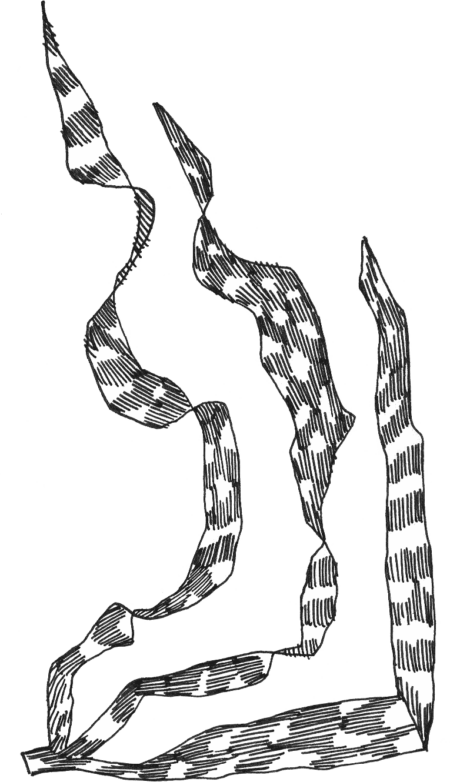
The beginning of FRIDA's participatory
grantmaking journey
FRIDA | Young Feminist Fund emerged from the collective vision of feminist activists across generations and from around the world who understood the urgent need for a fund that centres its mission around the experience, expertise and needs of young feminist organizers.
FRIDA exists today because of the power of feminist organizers to dream up possibilities and transform them into being through collective visioning and action. The formation of a young feminist fund like FRIDA as a movement solution shows what is possible when feminist movements have the resources to lead, dream and decide along the many possible paths to liberation and justice.
From the beginning, we wanted our funding practices to nourish the sustainability of life and the vibrancy of feminist movements. As we developed our grantmaking process, we looked for tools and practices that already lived within feminist movements. Community-informed and -led decision-making processes have always existed across intersectional social justice and community organizing, and they have been reshaped and refined by generations of organizers who are challenging power-over approaches and centering the vision of those impacted by decisions.
To make the most of limited funding1Today only 2% of all the funding dedicated to gender equality goes to women's and LBTQI+ organizing which leaves key drivers of radical change vastly underfunded. Watering the Leaves, Starving the Roots, feminist organizers have also continuously needed to dream up new ways to persevere, including creating alternative streams of resourcing through mutual aid, solidarity economies and direct action. This autonomous organizing has unveiled all the ways in which our relationships and connections alchemize abundance. The ability to come together and co-create feminist networks of support is our most valuable resource that sustains our activism.
These feminist organizing tools and practices taught us that feminist activists need funding mechanisms that are receptive to the diversity of feminist organizing and built with purpose to resource movement connection. It was clear that this would require a different approach from traditional top-down philanthropy. Feminist movements therefore created their own funding mechanism that would support the connection, agency and autonomy of feminist movements within the feminist movement ecosystem.
We know that "revolution will not be funded” and that the funding is not what makes makes social movements persist in their fight for justice, freedom and liberation. Still, oppression is well resourced and extractive capitalist systems are sustaining and thriving on inequalities, imposing also economic barriers to lives in dignity, safety and justice and exhausting movements’ capacities and resources. For autonomous, self-resourced movements to thrive, we need to fight those systems and transform how we think about and share resources. We need to continue to leverage funds that support feminist movements to organize, resist and move closer to the feminist futures we are dreaming up. Financial resources are needed to protect feminist organizers' safety and well-being in volatile socio-political contexts that can shift overnight. However, those resources also need to be in alignment with the needs and lives of feminist movements and detached from top-down funding approaches. How funders distribute resources, rather than just the resources themselves, can bring feminist movements closer to each other or deepen silos that are traditionally built through donor-driven agendas and interests.
Feminist organizers need resources that are flexible enough to move with them, change direction when they need to, and support all the diverse strategies that accompany their visions for transformative change. Financial resources also won't be as effective in isolation from other non-financial means of support, so we must fund in ways that are bold, diverse and creative, and that allow movement connections to be fortified in the process.
As a self-led fund created by and for young feminist activists, FRIDA is attuned to young feminist organizers' needs for funding that holistically supports their sustainability and well-being. In order to align our strategies with this commitment, we created a grantmaking model that would mirror the feminist values of solidarity and accountability, exchange and caring connections. We are committed to co-creating and continually adapting systems and practices that reflect these values.
As feminist funders, we often mirror emerging feminist movement solutions in our practices and strategies. The opportunity to learn from the feminist activists of the Association for Women's Rights in Development and other feminist funds has been critical for FRIDA's growth. FRIDA adopted its first participatory grantmaking model from Central American Women's Fund and that participatory approach has been an integral part of FRIDA's funding practice ever since. FRIDA's grantmaking practice has significantly changed over time in response to the needs of a multilingual, cross-thematic global participatory decision-making process, however the feminist values and principles behind it have not changed, just been reinforced.
Grounding our practice in feminist
values and principles
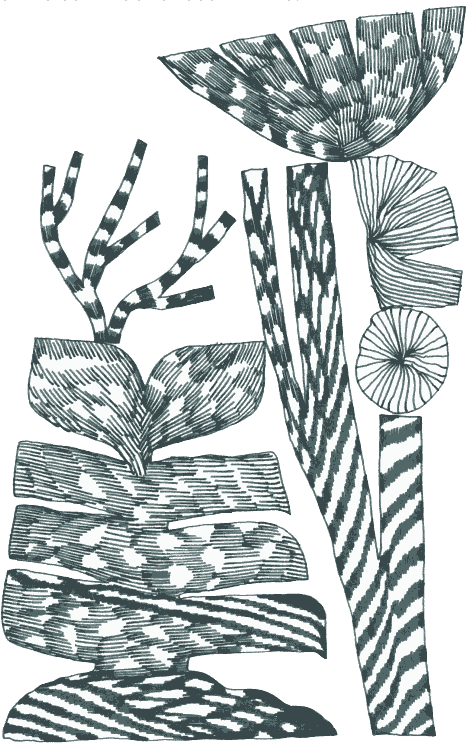
To transform, dream and envision transformative funding practices, we need to be able to name them, live them and embody them as everyday practice in our work. Global philanthropy might not have a shared interpretation of what community involvement in a participatory decision-making process should look like, and many funders might hesitate to define it at all to avoid limiting its potential to only what we can imagine at the moment. However, while we leave this concept open for growth, reflection and change, we also need to acknowledge that a lack of clarity and transparency in our processes can lead us as funders to hold onto power over the communities we exist to support. When agreements and definitions around the core values of participatory grantmaking strategies are loose or vague, funders largely still get to decide who is invited to participate in which organizational processes, at what stage and under what kind of conditions.
Without a deep understanding of the ethics of participation, and how privilege and oppression shape our realities and our own relationships to power as funders, participatory processes can become more for optics, without incorporating real decision-making power for the communities involved. This can lead activists to mistrust funder-led participatory processes, and instead of bringing organizers together, it can potentially cause further exclusion of communities, friction in social justice movements and perpetuation of harm towards those whose expertise these processes should amplify and protect.
The participatory grantmaking journey for FRIDA meant simultaneously and continually building new systems and integrating learnings from each grantmaking cycle. In this constant motion, some essential principles and values of our processes could have been overlooked in building the mechanics. We recognize that to fully embrace a movement-directed grantmaking approach that is flexible, creative, and reflective, we need to articulate the guidelines we use to mirror the feminist practices, values, and principles that we aspire for in our work.
To meet that need, this report articulates the principles that will guide us through all the possibilities of a feminist participatory grantmaking process and help us reflect on where we are at, where we dream to be and what we need to practice on our way there as a fund. As these feminist principles of participation expand and reshape with new learnings and experiences over time, we are grounding our practice in the following commitments:
- Young feminist activists from the Global South and East are co-designing and directing FRIDA’s grantmaking strategy, grantmaking process and distribution of resources as part of the staff, Board and Advisory Committee, as well as Grantee Partners and the broader young feminist community.
- FRIDA’s participatory grantmaking model will always evolve to mirror the feminist principles of intersectionality, solidarity building and exchange.
- The model encourages accountability practiced within movement spaces as well as FRIDA’s accountability toward young feminist movements.
- FRIDA’s approach to grantmaking is rooted in trust and support for the holistic well-being of young feminist movements.
- FRIDA’s participatory approach is an ever-expanding universe that reflects, evolves and explores new ways of working together that engage with contradictions and build conditions needed for connections to emerge.
- FRIDA examines its own power and position in relation to feminist movements and is committed to embodying decolonized practices of resource distribution.
- FRIDA learns with the community and reports back to the community. Young feminist presence, feedback and guidance is embedded in final decision-making processes across the organization.
- FRIDA will commit resources and knowledge to co-create and maintain a structure that holds space for generative conflict and expands access and capacity for participation.
- FRIDA commits to expanding its models of support while examining its own capacity to ensure those models are sustainable.
- FRIDA will be a space for brave dreaming about what is possible. We will explore different approaches to participatory practices, with the recognition that they might not always work. We stay accountable for the mistakes that uncover new learnings and approaches, as well as for repairing those mistakes.
What we hope to manifest through a participatory grantmaking practice
The intention of FRIDA's grantmaking model is to support and grow the collective power and leadership of young feminist organizers to make decisions about the politics of funding distribution, to resource each other's activism, sustainability and resilience, to learn and exchange knowledge and to build connections and witness their work as part of broader feminist movements. Through this process, young feminists make and guide decisions about what feminist strategies should be prioritized in their contexts and customize the criteria, methodology, and principles of the grantmaking model. At the same time, the participatory grantmaking process is an important learning mechanism for FRIDA that directs other aspects of our work and aligns our strategies with young feminist movement priorities.
What we hope to challenge and change with a participatory worldview
Neoliberal capitalism thrives in power-over structures that keep decision-making in the hands of those with privilege, access and wealth. These systems continue to grow their dominance by investing in the exclusion, disconnection and marginalization of communities, keeping people out of decision-making processes that concern their life, well-being and the land they inhabit. These power-over approaches occur within philanthropy and institutional giving, as grantmaking institutions hold power over the distribution of funding and the narratives and agendas their funding enforces.
We acknowledge that as a philanthropic institution, FRIDA also partakes in a larger non-profit industrial complex. Opening our organizational and funding processes to community participation is a responsibility that we hold as a feminist fund accountable to the young feminist organizers and the values we strive to put into practice. FRIDA is committed to shifting the funding paradigm by establishing grantmaking approaches that would decentralize its power over funding priorities and uplift the power of movement knowledge and solutions. We want to amplify practices that have the potential to resource feminist intersectional movements abundant in relationships of accountability, care, mutuality, collective power and solidarity. Participation means being in interaction and creation with all life around us. It is the principle on which we commit to co-creating feminist futures together with young feminist movements.
There are many ways to practice participatory grantmaking
Regardless of how FRIDA’s grantmaking model shifts in the future, we are committed to an intersectional feminist participatory practice and to continuously exploring new ways for young feminist activists to connect with and participate in all of FRIDA’s institutional processes, beyond just grantmaking. However, that doesn’t mean that everyone would always need to take the time to participate in every decision-making process. Participation is not only essential during any final decision-making, but also during the creation of processes. We also use feminist participatory approaches across FRIDA to help us move beyond just the concepts and philosophies of participation and into clear action and embodied practice. Young feminist visions are embedded into FRIDA’s institutional processes so that community input is always driving our decisions. We also involve young feminist activists from grantee, advisory and staff communities in knowledge creation and decision-making processes about governance, strategic planning and resource mobilization, which keeps FRIDA accountable to the community it exists to support.
Participatory processes can be complex
Participation is an organic way of connecting and interacting with others, the planet and all life around us. We come together in a community, build relationships of safety and belonging and co-create and sustain life and practices through interconnectedness and participation. However, interlocking systems of oppression maintain social exclusion by giving those in power the ability to determine who has the right to participate in what kind of processes. The root causes of inequalities are deeply embedded in our communities on systemic, structural and interpersonal levels. Those systems of oppression affect how we think, dream and stand in community with one another. As deeply as we are interconnected across solidarity networks in feminist movements, so too are the webs of oppression around us that we live within and seek to dismantle. We do not romanticize the meaning of participation or underestimate how much power it has in both life-affirming and harming practices. Participatory processes can perpetuate harm when they lack concepts of accountability, transparency, equity, and justice at their core. We acknowledge that a thoughtful structure rooted in intersectionality, contextual analyses and the capacity to hold complexities must be present in order to facilitate authentic participation and connections. FRIDA is committed to investing time, resources and knowledge to continuously re-imagine and build upon the structure that holds our participatory grantmaking process and to analyze the nuances of how power operates within it.
Participatory decision-making processes reflect on power in all its forms
Participatory grantmaking processes alone don't inherently subvert or challenge the core power dynamics and inequities in donor-grantee relationships. Even in FRIDA, where young feminist activists from the regions where we fund hold decision-making power across our organizational structure and governance5 we also need to reflect on our position and power as a feminist funder in relation to young feminist movements. We reflect on the forms of power that young feminists hold within FRIDA's governance body and its transformative potential to co-create practices that move us closer to the feminist futures. At the same time, we need to relate to this power in a way that doesn't perpetuate internalized systems of oppression that redirect us from our mission. FRIDA also needs to consider how we practice power in how we build our systems of support and programs, how we structure reporting requirements, how we recruit staff, board and advisory members, how we build trust and access for grantee partners to seek support, etc.
The intention of the participatory governance structure and across FRIDA's programmatic work is to decentralize power over different decisions and ensure that a diversity of perspectives and experiences are considered. Because we intend to support threads of feminist connection across generations, movements and geographies, we seek out exchanges, learnings and practices that would highlight the power inequities that exist in our work, where those inequities come from and what they are trying to sustain. FRIDA has a responsibility to examine the power dynamics that shape its processes and to channel power in ways that build the power of the collective with young feminist movements. Instead of holding the power of deciding how resources are distributed, FRIDA can use its power and access to co design and facilitate accountable participatory grantmaking practice with young feminist organizers that can also transforms the potential of these resources.
Participatory practices thrive within an intentional and flexible structure
As a feminist fund, when we create space for young feminist communities to participate in our grantmaking, governance and strategy creation, we need to examine every corner of our participatory model to identify its challenges and limitations. Community-led participatory processes require a deep understanding of the conditions needed for meaningful community participation and engagement to occur. FRIDA is committed to maintaining an intentional structure that can facilitate young feminist movement-led decision-making in an online space6 and nourish connections and solidarity, as well as address the complexities of these processes. The structure behind FRIDA’s participatory grantmaking model ensures it is intersectional and transparent, and that it encourages accountability throughout the process.
This structure connects all pieces of this process together in a holistic participatory decision-making model and allows each part to inform and interact with one another. The intention is not to impose a rigid structure that limits organic connection, but to allow for flexibility, adaptability and change to occur at any stage and to illuminate any inconsistencies or misalignment with our grantmaking values.
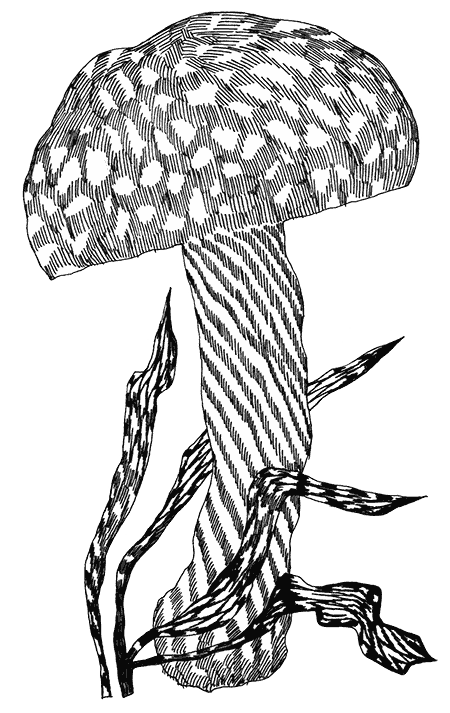
Building access and conditions for
participation in our processes
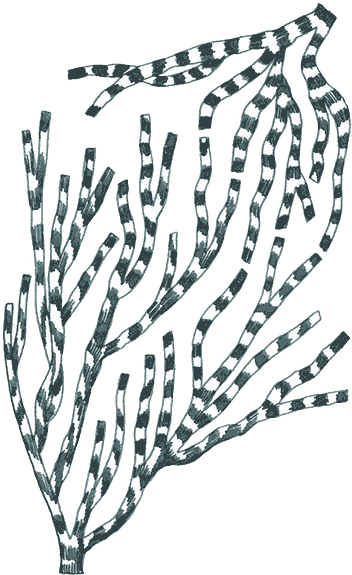
In the context of philanthropy, participatory decision-making processes can be a transformational practice, but they can also further inequalities, distrust and disconnection if the conditions for active participation of those involved are not addressed. Community decision-making processes not only require willingness and time from people who take part in them, but also an intentional support system in place to foster their active participation. Communities show up to the participatory process with all the parts of their reality, experiences, stories and backgrounds, all of which are complex, nuanced and diverse. Participation in a donor-facilitated process could impose barriers for some participants if the grantmaking systems have not been designed with intention and with understanding about what support and conditions are needed for them to participate. If a funder designs their participatory grantmaking processes without considering the pre-existing disadvantages that some communities face, participants from those communities may experience disappointment and decide not to participate in the future. They may feel like their participation doesn't matter, or even question whether they should be part of the decisions at all. It is often the most impacted communities who are left out of the decision-making processes that concern them. The unattainable requirements ask them to mobilize an inequitable amount of their internal resources to show up and participate in a process that doesn't recognize their experience-barriers include language and internet access, complex application forms and selection processes, administrative and financial documents, etc.
Learning how to engage with the complexities of participatory decision-making methodologies requires its own preparation and pace. As participatory funders, we need to honor these practices with flexibility, adaptability and time. It is important that funders reserve the time needed to address the challenges of their funding model and build knowledge and alternatives together with the communities they support. We need to be receptive to community feedback and to meet the needs of people who are engaging in our processes. Meeting those needs can include, but is not limited to, using simplified and accessible application formats and language, providing translation and guidance throughout the application process, minimizing complex technology, supporting those without internet access, offering financial compensation for participants’ time, etc. Our strategies must be creative to continuously build conditions and access for diverse communities to not only be part of, but also feel ownership within, funders' participatory decision-making processes, and that their experience and contributions are acknowledged and valued.
Intersectionality at the foundation of
the participatory grantmaking process
Since FRIDA has adopted a participatory grantmaking model, each grantmaking cycle has posed new questions and reflection for FRIDA about what meaningful participatory decision-making processes look like in each of the contexts where we fund1FRIDA is accountable to review the systems and structure behind the participatory process and to learning with and from the young feminist organizers in FRIDA’s Advisory Committee, grantee partners, applicants in each cycle and broader feminist knowledge production on interlocking systems of oppression in each context.. For participatory grantmaking to be effective in reaching diverse communities, the decision-making needs to be built using an intersectional lens that unveils interlocking systems of oppression and their multilayered manifestations. Intersectional approaches expose inconsistencies within our model and shed light on who is missing from our grantmaking process and what we need to change in our approach. We hold an ongoing commitment to build within our participatory processes a brave space for engaging with complexities and understanding how multiple systems of oppression could obscure dynamics of power and privilege, limit visibility and access, and build up bias, exclusion and discrimination towards one community while benefiting another. As a feminist fund, we need to be transparent about the principles and values in our work that are consistent and non-negotiable. We strive to politically position ourselves against interlocking systems of oppression. As funders, we need to be aware of the power we hold to replicate harmful practices simply by choosing to be unaccountable or to overlook it when our internal systems and practices are not aligned with our values. By applying a critical intersectional lens across our work, we expand our knowledge and capacity to facilitate multiple power dynamics and reimagine how we engage our community in ways that center care and trust.
Practicing feminist solidarity
and accountability
Participatory grantmaking should not be practiced as a way to remove funders’ responsibility over resource distribution and place that responsibility instead onto movements they are supporting. Funders are still responsible for how they design and facilitate their participatory grantmaking processes, how they choose to engage the communities they serve and where they draw limits of comfort in power-sharing. As participatory funders, we need to commit to practice active accountability and transparency about our process towards the movement we support.
Historically, as part of the non-profit industrial complex, funders have attached many accountability requirements to the resources directed to social justice movements, while the power over resources allowed them to stay largely unaccountable. This uneven power dynamic has been enforced through overwhelming reporting requests that divert grantee partners from sharing their work with each other and wider movements as part of collective accountability and knowledge-building and exchange. Inequitable distribution of resources and funding practices across geographies have narrowed the capacity for movements to be accountable to each other, increased competition over resources, limited interdependence and shrunk organizers’ ability to build sustainable solidarity networks. On the other hand, participatory grantmaking processes have the potential to shift this practice and cultivate accountability and relationships of reciprocity and collaboration, involving increased transparency and decision-making about the resources within movement spaces. FRIDA is devoted to facilitating participatory grantmaking processes that encourage connection, exchange and mutual accountability among young feminist organizers who are a part of it. FRIDA also stays accountable to young feminist movements by keeping its key processes open to young feminist participation, practicing transparency in our funding, governance, finances and resource mobilization, as well as reporting back to movements about how the outcome of those processes.
In alignment with our values, FRIDA practices transparency at each stage of the grantmaking process, including sharing data and learnings back with the young feminist activists who participate. Also, we need to be transparent about the information that we can't share in order to protect the confidentiality and safety of the activists we support, particularly depending on their regional and cultural context. Transparent grantmaking processes that hold many confidentiality and accountability complexities are not easy to implement, however. They require active trust-building between the funder and the community they support.
Even if we feel our processes are values-aligned, we as funders should not expect that organizers will show up with radical trust in funder-facilitated participatory processes. Interlocking systems of oppression deeply affect our lives, communities and relationships, and many young feminist collectives show up with an expectation that systemic oppression will also show up in FRIDA's grantmaking processes. The expectation of trust as implicit rather than something that must be mutually nurtured and shaped is also connected to the power dynamics in donor-grantee relationships. As funders, we can expand trust only by demonstrating our accountability through action and daily practice. We need to be vulnerable and transparent in reporting back to movements about our work and the challenges we face, and we need to honor the time and the effort it takes for trust to be built and in many cases restored. If we practice transparency and accountability towards the movements we support we enable more equitable exchange. Trust-building is a long-term process, one that invites us to experience new possibilities and funding strategies where we create and remodel solutions together with the movements we support.
FRIDA is committed to building close trust-based relationships with young feminist collectives, and to celebrating our successes and addressing our challenges transparently. A mutual trust-based relationship invite us to share our internal challenges and struggles as funders and as grantee partners, trusting that we will be met with compassion, care and support, and to nurture relationships of respect and mutuality that are rooted in true allyship. For instance, many grantee partners have felt safe to transparently address challenges in their organizing directly with FRIDA, knowing that they would still receive support and that their funding wouldn't be questioned.
Trust as an outcome, not an
assumption
In alignment with our values, FRIDA practices transparency at each stage of the grantmaking process, including sharing data and learnings back with the young feminist activists who participate. Also, we need to be transparent about the information that we can’t share in order to protect the confidentiality and safety of the activists we support, particularly depending on their regional and cultural context. Transparent grantmaking processes that hold many confidentiality and accountability complexities are not easy to implement, however. They require active trust-building between the funder and the community they serve.
Even if we feel our processes are values-aligned, we as funders should not expect that organizers will show up with radical trust in funder-facilitated participatory processes. Interlocking systems of oppression deeply affect our lives, communities and relationships, and many young feminist collectives show up with an expectation that systemic oppression will also show up in FRIDA’s grantmaking processes. The expectation of trust as implicit rather than something that must be mutually nurtured and shaped is also connected to the power dynamics in donor-grantee relationships. As funders, we can expand trust only by demonstrating our accountability through action and daily practice. We need to be vulnerable and transparent in reporting back to movements about our work and the challenges we face, and we need to honor the time and the effort it takes for trust to be built and in many cases restored. If we practice transparency and accountability towards the movements we support we enable more equitable exchange. Trust-building is a long-term process, one that invites us to experience new possibilities and funding strategies where we co-create and remodel solutions together with the movements we support.
FRIDA is committed to building close trust-based relationships with young feminist collectives, and to celebrating our successes and addressing our challenges transparently. A mutual trust-based relationship invites us to share our internal challenges and struggles as funders and as grantee partners, trusting that we will be met with compassion, care and support, and to nurture relationships of respect and mutuality that are rooted in true allyship. For instance, many grantee partners have felt safe to transparently address challenges in their organizing directly with FRIDA, knowing that they would still receive support and that their funding wouldn’t be questioned.

Meaningful participation can strengthens
movement connections
In FRIDA’s participatory grantmaking process, young feminist collectives get to read and learn about, as well as support, each other’s work. FRIDA’s participatory grantmaking process creates a peer movement space where young feminist collectives can experience a sense of collective agency by informing and directing funding priorities in their context, and by building relationships of mutuality and shared accountability with one another. Young feminist collectives get an opportunity to learn from each other’s realities and strategies and build on each other’s visions of organizing toward freedom and justice. Through this process, young feminist collectives can connect with diverse feminist movement solutions and approaches and deepen their knowledge about realities different from their own. A successful participatory grantmaking process for FRIDA would allow for an abundance of pathways, strategies and transformative feminist approaches to be in conversation with and inspire one another.
If it fosters the right connections and exchange, a participatory grantmaking process can generate a space for young feminist collectives to recognize themselves as part of vibrant, expansive feminist movements where every group, initiative and action is contributing to one another and therefore magnifying collective power. A meaningful participatory grantmaking process allows collectives to be in relationship with the outcome of their participation and witness not only the direct outcomes of their decision-making, but also how this ethos and practice could translate to feminist movement alliance. The movement building and exchange that FRIDA’s participatory decision-making process seeks to support have the potential to expand beyond FRIDA’s grantmaking process and to become embodied practices that young feminist collectives bring into their own communities.
Holding space for the complexities
of participation
Even though we strive to build participatory grantmaking processes that encourage affirming connections and enhance collaboration, we recognize that this does not mean that they will be free of disconnection, competition and friction. Meaningful connections and misalignment can occur simultaneously and interchangeably. Diverse perspectives and strategies about how to arrive to the futures we envision collectively can co-exist in the same movement space. Movements for justice are not homogeneous in their organizing, and people arrive to them with different lived experiences and backgrounds. Systems of oppression are deeply present in our lives and can affect us in similar or unique ways, which can manifest in our collaborations, visions and strategies. These complexities and contradictions are present in any participatory decision-making process and need to be facilitated with care and understanding.
As a participatory funder, FRIDA has the responsibility to engage with the complexities of our processes with a restorative approach that prevents the perpetuation of harm, without deepening frictions. The intersectional lens increases our capacity for creative intervention and allows us to hold space for generative conflict by helping us understand conflict’s origin, where it wants to move us and what it asks us to grow. An accessible, transparent participatory decision-making model allows us to experience the power of interconnectedness, as well as its complexities. However, it also provides tools of support when violence and abuse, and guides us through the restorative justice process. Therefore, having a structure behind any participatory grantmaking process allows for funders to approach difficult questions with curiosity about what there is to be learned and how to integrate those learnings in the future.
Participatory processes co-created by
and for the communities they serve
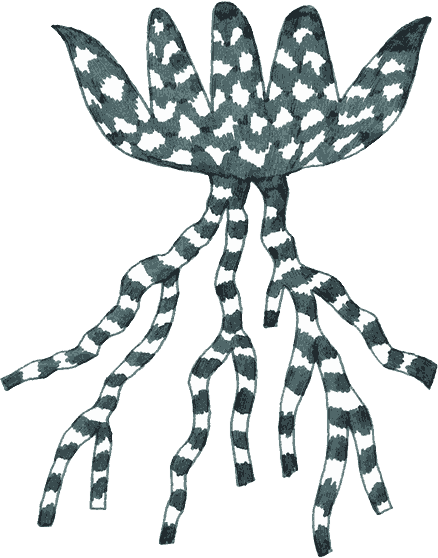
FRIDA’s participatory grantmaking process and systems are facilitated and co-developed by young feminist activists from FRIDA’s focus regions. Young feminist movements are abundant in knowledge, experience and strategies, and together we can dream up solutions for a participatory grantmaking system that serves these movements and mirrors feminist values. Young feminist leadership in the design of FRIDA’s participatory grantmaking model has been critical to address diverse perspectives, needs and realities.
If a participatory decision-making process doesn’t involve the communities it is serving in its strategy and system design, it might not identify and address the needs, dynamics and nuances of those communities’ lived experiences. Furthermore, it can also perpetuate the same hierarchies of knowledge dominance and production that have long existed within philanthropy. A decision making process in which young feminists participate must be built and facilitated with their expertise, ideas and solutions at the center. By following this principle, young feminist visions and experiences are integrated across FRIDA’s organizational structures, and decisions made are always resourced by their knowledge and experiences.
Learning together and reporting back
to young feminist movements
FRIDA’s participatory grantmaking process is an ever-expanding universe for learning and reflection. We listen to and welcome community feedback as a blessing that encourages new ways of thinking and moves our processes, systems and strategies closer to the young feminist movements that we exist to support. We see impact and value in processes that allow us to continuously learn, reflect and change our practice as a fund.
FRIDA incorporates space for feedback and change at every stage of the process, and apply learnings across our strategies, including stepping away from practices that we have outgrown. After each cycle, we collect learnings and evaluate the principles that our participatory model seeks to align with. We review where the model needs to change, adapt and expand. Changes in the organizing contexts of young feminist collectives can shift unpredictably and we must ensure our grantmaking systems
Process carries the impact
Feminist movements are composed of individual and collective relationships that create a lasting base for our activism. We strive to embody feminist practices that we want to see unfold. If our funding model is values-aligned with our funding strategy, the resources we provide could unlock new possibilities and outcomes. Together with young feminist organizers, we are practicing approaches and setting intentions for what we want to see replicated in the world. We get to test alternative mechanisms around the resources and values on which we hope to build our futures and learn in real time what we need to be mindful of on our way there.
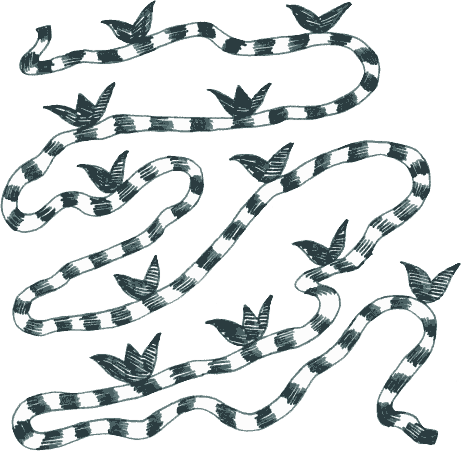
Sustainable systems and practices

Overtime, FRIDA has gathered a lot of knowledge and experience that hasn’t been always easy to document, share and implemented in each grantmaking cycle when staff members who hold this process transition out of FRIDA. It is a long and overwhelming process for all this knowledge and history to be collectivized and shared from one staff member to another. All the pieces of information that sustain this model are important to share and build into holistic practices that are easy to replicate in each cycle. FRIDA commits to a participatory model that is curious, ever-evolving and adaptive to the young feminist community’s needs. This commitment also implies that we need to evaluate and strengthen our internal capacity to practice the principles behind our participatory model. FRIDA seeks to listen inward while being attentive also to movement needs, so that we can remodel our systems internally to sustain this practice for the long haul.